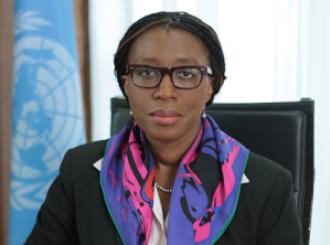
By Vera Songwe
United Nations Under-Secretary-General and Executive Secretary of the Economic Commission for Africa
The coronavirus disease (COVID-19) crisis has generated a global recession that has been unprecedented since the Great Depression that began in 1929, with a decline in global GDP estimated at 4.4% by the International Monetary Fund in 2020. North Africa (excluding Libya) is expected to register a loss of 3.6% in 2020, against a gain of 1.9% in 2019.
The impact of this crisis has been even more significant on the employment front, since North Africa had already been suffering from low job-generating growth and endemic unemployment (12% in 2019), especially among young people (30%). Projections for 2020 differ from country to country, but the average unemployment rate for the subregion is expected to exceed 15%.
The socioeconomic impact of the pandemic will remain important. It appears that the health crisis is not yet over, and North African economies are relying on sectors that may suffer from long-lasting repercussions, such as tourism (Egypt, Morocco and Tunisia) and hydrocarbons (Algeria and the Sudan). The crisis is undermining already fragile public finances, with significant budget deficits in some countries (9.6% in Algeria, 8.1% in Egypt and 10.8% in the Sudan in 2019) and fast-growing debt.
Towards a forced structural transformation
Beyond its short-term impact, the crisis will have medium- and long-term consequences that will be difficult to handle. North Africa was already suffering from a slowdown in per capita GDP growth and slow structural transformation, which has made only a weak contribution to productivity growth and job creation. The crisis is having an asymmetric and lasting impact on some sectors, thus leading to a forced structural transformation that is complicated by North Africa’s structural weaknesses.
Furthermore, North African countries are subjected to the tyranny of emergencies, as they face the short-term economic and social consequences of the crisis, while also planning for a medium-term economic rebound in an uncertain world that is undergoing changes – such as the acceleration of digitization and climate change – that will require a profound overhaul of development models.
The digital revolution must not to be missed
Digitization is both a threat to and an opportunity for North African and developing countries. It is a threat because the potential for job destruction is very high – some studies estimate that nearly 50% of existing jobs in North Africa are threatened. However, it is also an opportunity because digital technology can promote job creation, facilitate State modernization and increase public policy efficiency. Digitization also provides multiple applications that can help to solve economic development problems more efficiently and achieve the Sustainable Development Goals.[1]
North Africa must not miss the digital revolution. Doing so would put the subregion at risk of falling behind and make it much more difficult to catch up with global trends later on. The subregion must therefore invest heavily in digital infrastructure, strengthen its technological capacities and unleash its innovation potential.
We understand the complexity of the situation governments are faced with, as they need to allow for the absorption of short-term shocks while limiting losses in development gains, reducing their vulnerabilities and preparing their countries for the post COVID-19 world. That balancing act is complicated on the one hand by the magnitude of the shock, which makes it necessary to carry out short- and medium-term reforms in many areas and to mobilize significant resources. On the other hand, the way out of the crisis must be rooted in a medium- to long-term vision, which therefore makes it necessary to design public policies that bring coherence to responses to both short-term and medium-term challenges. In fact, what we are witnessing is not a simple economic shock, but rather a deep crisis that will generate a profound transformation in production and consumption patterns.
In this situation, the Economic Commission for Africa (ECA) stands alongside its member States.
Key ECA initiatives on financing, pharmaceuticals and digitization
ECA has launched three key initiatives in support of economic recovery in Africa. The first is the creation of a liquidity and sustainability facility, a specialized fund through which ECA can support vulnerable emerging markets and vulnerable sovereign funds which do not favour sustainable development initiatives. The more immediate goal is to facilitate access to liquidity, loans and investments in those countries.
The second initiative focuses on health issues, with a call for expressions of interest aimed at African pharmaceutical manufacturers for the production of 107 maternal and child health products and other essential health products, with a view to increasing access to affordable and reliable supplies of quality-assured drugs. This effort is expected to increase the region's bargaining power through economies of scale, while centralizing quality assurance. The latter is an essential feature, given that 42% of the fake drugs that were seized between 2013 and 2017 around the world were found in Africa.[2]
Finally, the third initiative focuses on digitization, through the ECA Centre of Excellence for Digital Identity, Trade and Economy, which works hard to help African countries to address the challenges that confront them, and to use digital development to promote inclusive and sustainable growth and transform African economies and societies.
The thirty-fifth meeting of the Intergovernmental Committee of Senior Officials and Experts for North Africa, held on 17 November under the theme “COVID-19: recovery policies and strategies for North Africa” provided an opportunity for ECA teams and our national partners to identify the priorities of member States, with a view to achieving rapid, sound and sustainable economic recovery in North Africa.